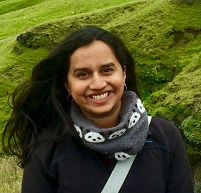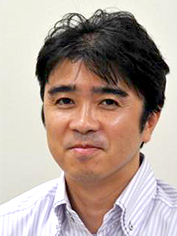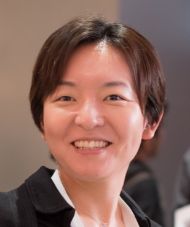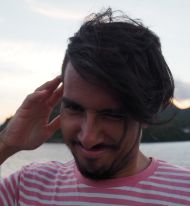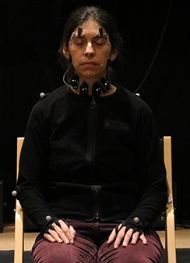| Name | Bio |
|---|---|
|
Agata Zelechowska
|
Agata Zelechowska is a PhD student at RITMO Centre for Interdisciplinary Studies in Rhythm, Time and Motion, working within the research project MICRO - Human Bodily Micromotion in Music Perception and Interaction. Her background is mainly in psychology, cognitive neuroscience and classical music. In her PhD project she explores how different ways of transmitting sound can affect bodily responses to music, and how interpersonal differences (personality, listening habits etc.) modulate such responses. She is particularly interested in the mechanism of entrainment to musical rhythm and its evolutionary origins. |
| Alexander Refsum Jensenius
|
Alexander Refsum Jensenius is a music researcher and research musician. His research focuses on why music makes us move, which he explores through empirical studies using different types of motion sensing technologies. He also uses the analytic knowledge and tools in the creation of new music, with both traditional and very untraditional instruments. |
| Artur Becker
|
I am from Brazil, where I got a Bachelor in Product Design from the Universidade Federal do Rio Grande do Sul, with an exchange year at the Umeå Institute of Design, Sweden. Now I am an exchange student in the University of Oslo's Master in Computer Science. I have work experience in industrial design and user experience design. |
| Andre Holzapfel
|
Since October 1, 2016, I am with the Media Technology and Interaction Design department, and my research is within the area of Sound and Music Computing (SMC). Specific research topics that I focus on are the development of beat and meter tracking in musical audio signals, music corpus analysis -- especially of rhythmic aspects such as tempo, timing, and relation of performance to meter. My research in ethnomusicology focuses on the relation of dance and music, in particular in the island of Crete. Since my arrival at KTH, I extended my above research activities from analysis of audio and symbolic data, to the analysis of motion capture signals. In specific, my new research topics related to this are the tracking of human rhythmic behavior, applications of music in motion capture environments for rehabilitation purposes, and ethical aspects of computational approaches to music. Besides my research related to SMC, I also completed a second dissertation in ethnomusicology at the MIAM institute in Istanbul. |
| Andreas Bergsland
|
Andreas Bergsland is associate professor and study programme leader at Music Technology, Norwegian University of Science and Technology, where he teaches courses in analytical and aesthetical perspectives on music and technology, music technology history and audio programming. His research interests are voice in electroacoustic music, history and analysis of electroacoustic music, live-electronics from a performative perspective, interactive dance and movement-sound interaction for users with disabilities. Bergsland has also been involved in interactive dance composition, sound design for exhibitions, installations, large scale multi-media events, in addition to doing live-electronics performances and working with computer instrument design for motion tracking systems. |
| Anne Danielsen
|
Anne Danielsen is Professor of Musicology and Director of RITMO Centre for Interdisciplinary Studies in Rhythm, Time and Motion at the University of Oslo, Norway. She has published widely on rhythm, groove and digital technology in post-war African-American popular music. |
Birgitta Burger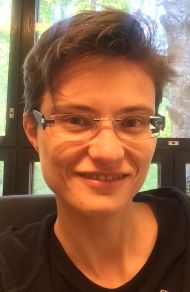 |
Dr. Birgitta Burger has a background in Systematic Musicology and Computer Science and is postdoctoral researcher at the Centre for Interdisciplinary Music Research at the University of Jyväskylä, Finland. She is interested in the role of the body in production, perception, and understanding of music and focusses her current research on music-induced movement, synchronization, and entrainment. She is also involved in a music therapy project on post-stroke motor recovery using active music therapy. Furthermore, she is co-developing Mocap Toolbox, a Matlab Toolbox for visualizing and analyzing motion capture data. |
| Bruno Laeng
|
Bruno Laeng is professor in cognitive neuropsychology. He received his Bachelor in experimental psychology from Universitá La Sapienza (Roma, Italia) and a Ph.D. in biological psychology from The University of Michigan (Ann Arbor, Michigan, USA). He has previously held positions at the University of Bergen, University of Tromsø, University of Guelph (Canada), Harvard University (USA) and he has been a Clinical Research Fellow at the Massachusetts General Hospital, Boston (USA). In 2018 he has been inducted as member of The Norwegian Academy of Science (Humanities and Social Sciences Division). |
| Çağrı Erdem
|
Çağrı Erdem is an interdisciplinary artist and researcher working with interactive systems for computational music. In the sequel of his studies in classical performance and jazz composition, he has earned his Master’s degree in Sonic Arts where he has focused on the extraction of performative and ancillary body movements in the form of biosignals for the augmentation of traditional music instruments. He is currently expanding his research on the extraction of biosignal features, real-time mapping strategies, and digital sound synthesis and effects processing techniques with an emphasis on sonic objects and their embodied cognition. |
| Carolina Brum Medeiros
|
Dr. Carolina Brum Medeiros is a researcher and an engineer. She is the founder and CTO of Fliprl, and a research affiliate of the IDMIL Lab in Montreal/Canada, and the Computer Music Group in Sao Paulo/Brazil. She is currently assigned as an algorithms engineer on the Signal Processing and Gesture Recognition team of Project Soli at Google ATAP. She received a B.S. degree in electrical engineering, and a M.S. degree in mechanical engineering 2009 from the Universidade Federal de Santa Catarina, Florianópolis, Brazil, and a Ph.D. degree with the Music Technology Program at McGill University in 2015. Her PhD research was dedicated to improve sensing of human input signals, under the supervision of Prof. Marcelo Wanderley (McGill). Her primary research is about sensing and sensor fusion for human motion analysis. Her research aims to highlight the benefits of applying signal processing techniques for systems whose models are hard to define, or for cases where the ground truth is unknown. She collaborated with Prof. Joseph Paradiso (MIT Media Lab) developing data fusion techniques for sensor and motion capture data of baseball pitching. As an engineer and an active person, she is passionate about testing, evaluating, and producing new sensing techniques for motion analysis, posture, and movement awareness. |
| Catherine Massie-Laberge
|
Catherine Massie-Laberge is a PhD researcher at the Input Devices and Music Interaction Laboratory, McGill University under the supervision of Professors Isabelle Cossette and Marcelo Wanderley. She holds a master’s degree in Music Education from McGill University and a Bachelor in Piano Performance from Université de Montréal. She is working on musician-instrument interaction and methods for tracking and analyzing pianists’ movements using mocap and force plate technology. Her research aims at developing new applications for enhanced pedagogical approaches and improving piano technique and expressive communication skills. She is recipient of the SSHRC Graduate Scholarship and was student coordinator of the research axis on Cognition, Perception and Movement at CIRMMT.Charles Martin |
| Charles Martin
|
Charles Martin is a specialist in percussion, music technology, and musical AI from Australia. He links percussion with electroacoustic music and other media through new technologies. He is the author of musical apps such as PhaseRings and MicroJam, and founded touchscreen ensemble, Ensemble Metatone, percussion group, Ensemble Evolution, and cross-artform group, Last Man to Die. At present, Charles is a postdoc at the University of Oslo in the Engineering Prediction and Embodied Cognition (EPEC) project where he is developing new ways to predict musical intentions and performances in smartphone apps and embedded devices |
| Erwin Schoonderwaldt
|
Erwin has a background in physics and violin playing. His main expertise is on violin bowing using an interdisciplinary approach combining the realms of music acoustics, auditory perception and sensory-motor control. After his studies of physics he participated in a joint research project Music Mind Machine group (Nijmegen) and Faculty of Movement Sciences (Amsterdam). He completed a PhD in Music Acoustics at KTH in Stockholm on the topic of acoustics and mechanics of violin bowing. He was awarded an Alexander-von-Humboldt scholarship for pursuing postdoc studies at Institute of Music Physiology and Musicians' Medicine in Hannover. He currently works at Qualisys in Gothenburg. |
| Esteban Maestre
|
Esteban Maestre was born in Barcelona in 1979. He received his BSc and MSc degrees in electrical engineering from Universitat Politècnica de Catalunya in 2000 and 2003, and the DEA and PhD degrees in computer science and digital communication from Universitat Pompeu Fabra in 2006 and 2009. He has held research and/or teaching positions at Universitat Politècnica de Catalunya, Philips Research, Universitat Pompeu Fabra, Stanford University, and McGill University. His research interests span music performance modeling, sound synthesis by physical modeling, and virtual acoustics and spatial audio. |
| Federico Visi
|
Researcher, composer and performer, he carried out his doctoral research on body movement in instrumental music performance at the Interdisciplinary Centre for Computer Music Research (ICCMR), University of Plymouth, UK. His research interests include music-related body movement, music cognition, motion-sensing technologies, machine learning, human-computer interaction, and interactive music systems. He has presented his research output at several international conferences and has composed music for ensembles, films, dance, theatre, and installations. His work as a performer focuses on motion and presence of the musician’s body and on the concept of liveness in electronic music performance.
|
| Felix Albu
|
Dr. Felix Albu received the M.Sc. and Ph.D. degrees in electrical engineering from the Politehnica University of Bucharest, Romania, in 1993 and 1999, respectively. He obtained an extensive research experience as a postdoctoral researcher in University College Dublin, Ireland (1999-2002), and Aristotle University of Thessaloniki, Greece (2004-2005). He has got industrial research experience at Lake Communications, Dublin, Ireland from 2002 to 2003 and at Fotonation Romania from 2006 to 2011. Currently, he is a professor at Valahia University of Targoviste, Romania. His research interests are: adaptive filtering, image/speech/audio/music processing, neural networks and machine learning. |
| Georgios Sioros
|
George Sioros is a post-doctoral researcher at UiO / RITMO. His main research interests revolve around the perception and generation of musical rhythms. He is currently investigating the effect of sound and rhythm features, such as micro timing and syncopation, on body movement. He has worked extensively in the development of automatic rhythm generation algorithms and applications, the modeling of syncopation and the analysis of the sensation of groove. He has developed his research activity in rhythms as a member of the Sound and Music Computing Group of INESC-TEC, in Porto from 2010 until 2017. In 2016, he obtained a PhD from the University of Porto in Digital Media. |
| Grigore Burloiu
|
In 2016 I completed my PhD thesis "Dynamic Music Representations for Real-Time Performance" at the University "Politehnica" of Bucharest, dealing with audio alignment-based tempo modelling, mixed music representations (at IRCAM in the Antescofo team) and sonification. I now head the Sound & Light Digital Interaction lab at the CINETic research centre in Bucharest, working with real-time sonification models of movement and gesture in the SoundThimble project. I also coordinate the new international Interactive Technology for Performing and Media Arts M.A. programme at CINETic, where I teach Creative Coding and Interactive Music Systems, as well as supervising practical and dissertation projects. https://pub.academia.edu/GrigoreBurloiu |
| Guilherme Câmara
|
I have a Bachelor’s (2013) and Master’s degree (2016) in Musicology from the Department of Musicology at the University of Oslo. For my master’s thesis I investigated patterns of microrhythmic expression in classic funk and jazz-funk (1967-1971) recordings. In my Ph.D. project I am currently investigating the interaction between timing and sound at the level of rhythmic production, as well as perception, in live groove-based contexts more broadly. Here, a series of performance experiments have been conducted in order to answer to what extent instrumentalists might systematically manipulate ‘sound’ parameters – such as intensity, acoustic envelope and timbre – when playing under various instructed microrhythmic timing conditions (‘laid-back’, ‘pushed’, or ‘on-the-beat’). Motion-sound interaction patterns will also be investigated from parallel mo-cap data collected. |
|
Heidi Marie Umbach Hansen
|
Graduate in Neuroscience, currently working as a clinical engineer for a Norwegian MedTech company searching for biomarkers using sensor fusion. With a keen interest in the neural and cognitive foundations of music, I opted to take time off after graduation to gain experience through an internship in neuromusical research. During this time, I was part of a case-study demonstrating a preserved ability to learn and recall a new song in a non-musician with severe Alzheimer’s disease. When I’m not working, I travel the world searching for great music experiences. Frequently spotted front row at Gregory Porter and Anderson Paak gigs. |
| Henrik Herrebrøden
|
Henrik Herrebrøden is a psychologist and researcher. The general question of interest in his work is: Which factors are associated superior development and performance in sports? More recently, Henrik has worked on a project in cooperation with the Norwegian national rowing team. Along with rowers, coaches and colleagues, Henrik explores how rowers move rhythmically, as well as how rhythm and sound may be used to improve performance in rowing. Mocap technology plays a pivotal role in this venture. |
| Henrik Sinding-Larsen
|
Henrik Sinding-Larsen, researcher, Department of Social Anthropology, University of Oslo. Magister thesis (1983, social anthropology, UiO) on the history and revival of Norwegian folk music. Broad interdisciplinary education (UiO): social anthropology, French, biology, computer science. Several positions as researcher in University of Oslo based projects on ethnopolitics, sustainability, computer systems development, semiotics, and interdisciplinarity as a topic in itself. Current interests: interdisciplinarity across anthropology and biology and the role of computers in the transformation of culture and society. Recent publication: “Musical notation as the externalization of imagined, complex sound.”, chapter in The Oxford Handbook of Sound and Imagination (forthcoming 2019) |
| John Sullivan
|
John Sullivan is a musician, music technology researcher and Ph.D. candidate at McGill University whose work focuses on the design of new instruments and technologies for music and multimedia performance. His current research includes projects in motion capture and movement analysis of live performance, development and testing of haptic interfaces, and user-driven methodologies for the design and evaluation of digital musical instruments. As a musician, Sullivan has been a part of several indie rock groups from the northeastern US. He has released several albums under various names, and toured extensively in the US, Canada, and Europe. |
| Kayla Burnim
|
Kayla Burnim has a Bachelors Degree in Mechanical Engineering and began her career as a Research and Development engineer inventing new medical devices. She then completed her Masters in Bioengineering doing her thesis work on the biomechanics of pediatric ACL tears. She has worked at Children’s Hospital Colorado’s Center for Gait and Movement Analysis for the past five years supporting both clinical and research efforts. She will be joining RITMO as a Senior Engineer in January. For fun she likes to explore nature with her dog |
| Kjetil Vikene
|
PhD Candidate (submitted!) at the Institute of Biological and Medical Psychology, University of Bergen and Assistant Professor at Grieg Academy of Music, University of Bergen. Master in literary studies, experienced computer programmer and avid amateur musician. Interested in all-things-rhythm, particularly the effect of complexity on several levels and the connections between rhythm and cognition, which makes Parkinson's disease a particularly interesting pathology to study. Could at one point name all members of The Mothers of Invention alphabetically and chronologically, but has since developed other more useful social skills. |
| Kristian Nymoen
|
Kristian Nymoen is Associate Professor at the University of Oslo, affiliated with the departments of Informatics and Musicology, and RITMO Centre for Interdisciplinary Studies in Rhythm, Time and Motion. Nymoen's teaching and research is within music-related body motion, sound analysis, music cognition, interactive music, music information retrieval and machine learning. |
| Kyrre Glette
|
Kyrre Glette received his M.Sc. in Computer Engineering from the Norwegian University of Science and Technology, Norway, and his Ph.D. in Computer Science from the University of Oslo, Norway. He is currently employed at the University of Oslo as an Associate Professor, affiliated with the Robotics and Intelligent Systems research group, and the RITMO Centre for Interdisciplinary Studies in Rhythm, Time and Motion. His research interests are intelligent, adaptive, and biologically inspired systems, with an emphasis on simulation, design, and prototyping of biologically inspired robots. |
|
Linda Rennie
|
Walking is a fundamental function to humans which is often affected by injury and disease, and a primary goal of many undergoing rehabilitation is to improve and restore their ability to walk. Linda is a physiotherapist specialized in neuro-rehabilitation and motion analysis, and through the use of motion capture she performs advanced three dimensional gait analysis to inform treatment planning and document change in gait function over a range of diagnosis. Linda is currently finalizing her PhD thesis where she is examining gait function in individuals with Parkinson’s disease, and investigating how intensive balance training impacts different aspects of gait in this group. |
| Luke Dahl
|
Luke Dahl is Assistant Professor of Composition and Computer Technology in the Music Department at the University of Virginia. His work focuses on music interaction design, real-time musical collaboration, and motion and gesture in music and dance. He is active in the NIME, computer music, and MOCO communities. His interest in movement originates from his long-term practice of Aikido and his training as a certified Feldenkrais practitioner. At the Mocap Workshop he will present, with Federico Visi, Modosc, a Max library for computing movement features from mocap data in real-time. He can be reached at lukedahl@virginia.edu. |
| Luiz Naveda
|
Luiz Naveda is professor of musicology and director of the Post-graduate program in Arts at the State University of Minas Gerais (Brazil). He holds a bachelor and a master degree in music performance, and a PhD in Musicology from Ghent University (2011). He has been working on music and dance in Afro-Brazilian culture, musical gesture, musical timing and interactive systems. Besides his academic career, Luiz has been working actively in the development of interactive and musical applications and produced a number of artworks including original music, art installations and video for dance performances, exhibitions and advertisement. |
| Marc Leman
|
Marc Leman is Methusalem research professor in systematic musicology and director of the music research lab "IPEM" (since 1996). Currently, his is again head of the dept. of Music, Arts and Theatre Studies, Ghent University (2002-2010; 2018-present). He published >400 articles, >3 monographies, > 3 co-edited books. His lab is an international research centre for the computational and empirical study of music in relation to synchronisation, entrainment, and expressive interaction. In 2015, he received for his pioneering work in the humanities the prestigious five-yearly FWO Excellence Award 'John-Ernst Solvay'. |
| Marc R. Thompson
|
I received my doctorate from the University of Jyväskylä, Finland in 2012. My dissertation focused on embodiment in musical production and perception, and comprised of studies exploring the role of the body within various musical activities including piano performance, conducting and African dance. As member of the Finnish Centre for Interdisciplinary Music Research, my interests include entrainment in music performance, gesture-controlled musical interfaces and university pedagogy. My current post is Senior Lecturer in Music, Mind & Technology at the University of Jyväskylä. |
| Mari Romarheim
|
Mari Romarheim Haugen is a Post-Doctoral research fellow at the TIME project at RITMO. She works in the field of music cognition with a special interest in music and motion correspondences in rhythm production and perception. She is also interested in implicit learning, subjective experience and cultural background as influential elements in the perception of music. Her Postdoc project investigates rhythm production and perception in traditional Scandinavian folk music and dance. She holds a BA in Rhythmic Music and Dance Education from The Royal Academy of Music (DK) and a MA and PhD in Musicology from The University of Oslo. |
| Merve Akça
|
Merve Akça is a doctoral research fellow in Music Cognition at RITMO Center for Interdisciplinary Studies in Rhythm, Time, and Motion, University of Oslo. She holds a Bachelor of Science degree in Psychology from Izmir University of Economics, Turkey and a Master of Science degree in Psychology with a focus on Social Psychology and Cognitive Neuropsychology from Lund University, Sweden. Her current project deals with auditory attentional blink phenomenon, where she aims to explore the temporal dynamics of selective attention in relation to musical expertise. Outside academia, she writes concert/festival reviews on a rock/heavy metal magazine and plays various instruments. |
| Ola Eriksrud
|
Received his Master of Science in Physical Therapy from the University of Connecticut (USA) in 2000. Assistant professor at the department of Physical Performance at the Norwegian School of Sport Science (2005 to present) where he is currently enrolled in the PhD program. Research interests include biomechanics, motor control, athletic development and performance. Physiotherapist at the Norwegian Olympic Sport Center in Oslo. Involved in multiple innovation projects in the application of robotics to testing, training and rehabilitation. https://orcid.org/0000-0003-4971-6723 |
| Olivier Lartillot
|
Olivier Lartillot is a postdoc researcher at RITMO, expert in computational music and sound analysis and artificial intelligence. While previously working with Petri Toiviainen at the Finnish Centre of Excellence in Interdisciplinary Music Research at the University of Jyväskylä, he designed MIRtoolbox, a referential tool for music feature extraction from audio. He also works on symbolic music analysis, notably on sequential pattern mining. In the context of his Academy of Finland research fellowship, he conceived the MiningSuite, an analytical framework that combines audio, music and other modalities such as video and motion capture. |
| Olof Misgeld
|
Olof Misgeld, from Uppsala, is a Swedish folk musician and teacher at the Department of Folk Music Folk Music at the Royal College of Music in Stockholm (KMH). Olof have a Bachelor in Folk Music Performance and a Master in Music Theory from KMH, and is now doing PhD-studies (50%) at KTH. Olof’s research is centered around rhythm, meter and groove in Swedish Folk music and dancing. This is also a large part of his practice as musician in ongoing pedagogical and artistic collaborations with some of Sweden’s foremost folk dancers and dance pedagogues. |
| Petri Toiviainen
|
Petri Toiviainen obtained his PhD in musicology in 1996 and was appointed as a Professor of Music at the University of Jyväskylä in 2003. He was the leader of the Finnish Centre of Excellence in Interdisciplinary Music research in 2014-2018. Since 2014 he holds an Academy Professorship nominated by the Academy of Finland. His research interests include music perception, music and movement, sound and music computing, and neuroscience of music. |
| Qichao Lan
|
I had my master degree in Sonic Art at the University of Sheffield, where I also joined the Algorave live coding community. My research at RITMO starts with designing an interactive music generative system. By writing tools and models in SuperCollider and Python, I will study how deep neural networks can alter the features in electronic dance music, together with the related influence on body movement, entrainment, etc. Also, I am exploring how human beings can interact with this generative system through body motion and code expression. |
| Ragnhild Torvanger Solberg
|
Ragnhild Torvanger Solberg is a music researcher whose research interests are electronic dance music, interpersonal synchronization and peak experiences. Ragnhild completed her Ph.D. in January 2018 investigating experiences with electronic dance music using motion capture and psychophysiological measures. Her thesis focused on associations between musical characteristics, embodiment and peak-pleasurable responses. She also holds a Master's degree in Musicology and is the subject editor of electronic music in the Great Norwegian Encyclopedia. Ragnhild is currently working at the Norwegian Academy of Music, plays the bass guitar and is, not surprisingly, a huge fan of listening and dancing to electronic dance music. |
| Rolf Inge Godøy
|
Rolf Inge Godøy is professor of music theory at the Department of Musicology, University of Oslo. His main interest is in phenomenological approaches to music theory, meaning taking our subjective experiences of music as the point of departure for music theory. This work has been expanded to include research on music-related body motion in performance and listening, using various conceptual and technological tools to explore the relationships between sound and body motion in the experience of music. |
| Sagar Sen
|
Sagar Sen is research scientist at Simula Research Laboratory where his current research interests are about testing Autonomous Internet of Things. He is also the co-founder and VP of product development at Sweetzpot AS where he tests sensors to measure forces, breathing, motion, and heart rate (variability) in various conditions. He also helps develop end-user applications based on the data from the sensors to address needs of customers in sports, health, and the arts. |
| Shigeki Nakauchi
|
Shigeki Nakauchi received his doctoral degree in systems and information systems from Toyohashi University of Technology in 1993. He is currently a professor in the Department of Computer Science & Engineering, Toyohashi University of Technology. His current research interests include vision science, especially the cognitive mechanisms of preference/attractiveness, material perception, expertise in perception/cognition, and vision technology for visualizing invisible information for e.g. health/quality inspection. |
| Sofia Dahl
|
Sofia Dahl holds a PhD in Speech and Music communication from KTH, Royal Institute of Technology, Sweden and a position as associate professor at Aalborg University, campus Copenhagen, Denmark. With a background in electrical engineering and musicology, her research spans disciplines such as musicology, psychology, neuroscience, music performance, and music acoustics. Being a drummer, she has a special focus on rhythmic movements and their link to our perception and control of timing and tempo. This has included studies of movements and timing in drumming, perception of timing and rhythm, and the expressivity in players' movements. |
|
Tejaswinee Kelkar
|
I am a PhD student at RITMO and a singer with an interest in melodic perception, and human body motion. I have a master’s degree in computer science and have trained in North Indian classical music, western classical composition, and play the harmonium and other instruments. My PhD project is about melodic cognition using motion-capture and motion-annotations as the main tool to elicit our understanding of melodic contour, and prosody in music. I am also interested in musical chills, and melodic memory and indexing. Artistically, I am interested in improvisation, and recreation of the voice as a disembodied object. |
| Tetsuto Minami
|
Tetsuto Minami is an associate professor (cognitive neuroscience) in Electronics-Inspired Interdisciplinary Research Institute, Toyohashi University of technology, Japan. He received a Ph.D. in informatics from Kyoto University, Japan. He was a postdoctoral researcher in national institute of information and communications technology (NiCT). His research focuses on human cognitive function such as face and emotional processing using a non-invasive method such as EEG, fMRI, and pupillometry. |
| Toshie Matsui
|
Toshie Matsui is an Associate Professor in Toyohashi University of Technology in Japan, where she has joined in 2017. She received her B. Mus., M. Mus., and Ph.D. in Musicology from Kyoto City University of Arts in 2000, 2004, and 2010, respectively. Her research interest is the auditory peripheral modeling. She is now engaged in a couple of research projects on hearing loss simulation. Her goal is to link researches on auditory psychophysics and music perception research. Since she was major in piano performance until her Master, she has been also interested in the professional performers’ perception of music. |
| Victor Gonzalez
|
Before I joined the faculty at the Department of Musicology in January 2017, I completed my PhD research in hand movement analysis at the University of Sheffield, UK. I was Graduate Teaching Assistant and Facilitator for Mechanical Engineering courses at undergraduate and master levels at the University of Sheffield. I also held a consulting intern position at Sheffield City Council's Life Long Learning Skills & Communities in a project aimed at improving employability conditions of people with learning disabilities. During my research on human hand movement I was involved with the Centre for Assistive Technology and Connected Healthcare (CATCH) and the Insigneo Institute for in silico medicine at the University of Sheffield. Some of my hand movement research has been published in Frontiers in Bioengineering, Frontiers in Psychology, International Journal of Therapy and Rehabilitation, and the Journal of Hand Therapy. I have presented my research at the International Congress of Biomechanics, 2015 and the World Congress of Biomechanics 2018. I got a Mechatronics Engineering degree and Mechanical Engineering Master's from the National Autonomous University of Mexico (UNAM). |
| Ximena Alarcón
|
Ximena Alarcón (BA, MA, PhD) is a sound artist researcher interested in listening to interstices: dreams, underground public transport, and the migratory context. Her research focuses on the creation of sonic telematic performances using Deep Listening, telematic improvisation, and interfaces for relational listening. She is now a Marie Skłodowska Curie Fellow at the Department of Musicology at the University of Oslo, developing her project INTIMAL: a novel physical-virtual "embodied system" for relational listening, integrating: body, memory, migration and telematics. |
| Yuta Suzuki
|
Yuta Suzuki (born in Miyagi, Japan) received Bachelor and Master degrees in the department of computer science and engineering from the Toyohashi university of Technology, Japan, in 2015 and 2017, respectively. Since 2017, he has been a Ph.d. candidate and Japan Society for the Promotion of Science(JSPS) research fellowship at the Toyohashi university of Technology. In the doctoral research project, we are focusing on the brightness perception with optical illusion by using an eye-tracking and electroencephalogram. At the Oslo university, we are interested in the integration between visual and auditory brain processing with a motion illusion |




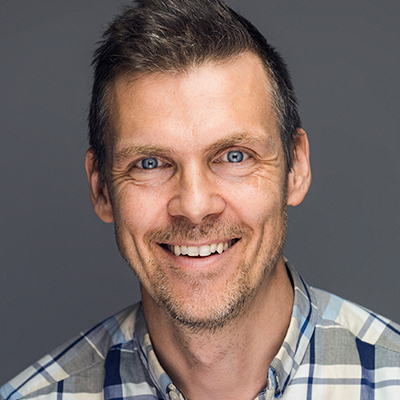
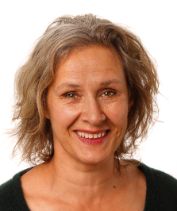
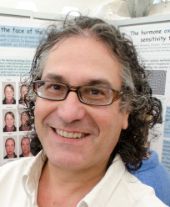
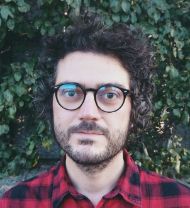

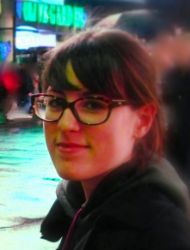



(1).jpg)




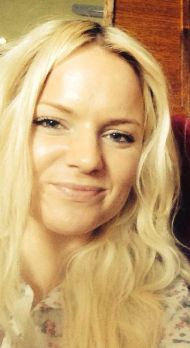
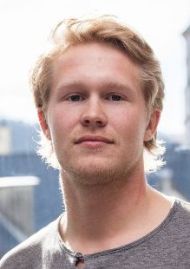
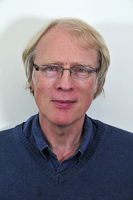
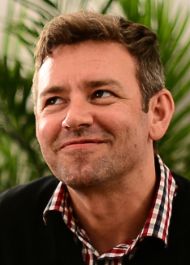




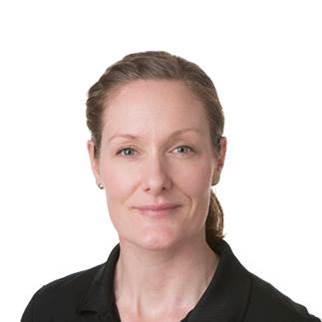
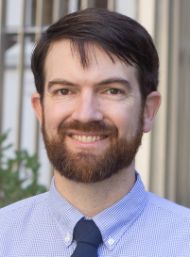



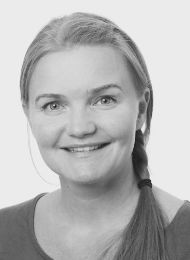

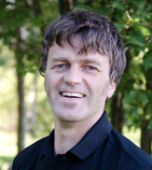







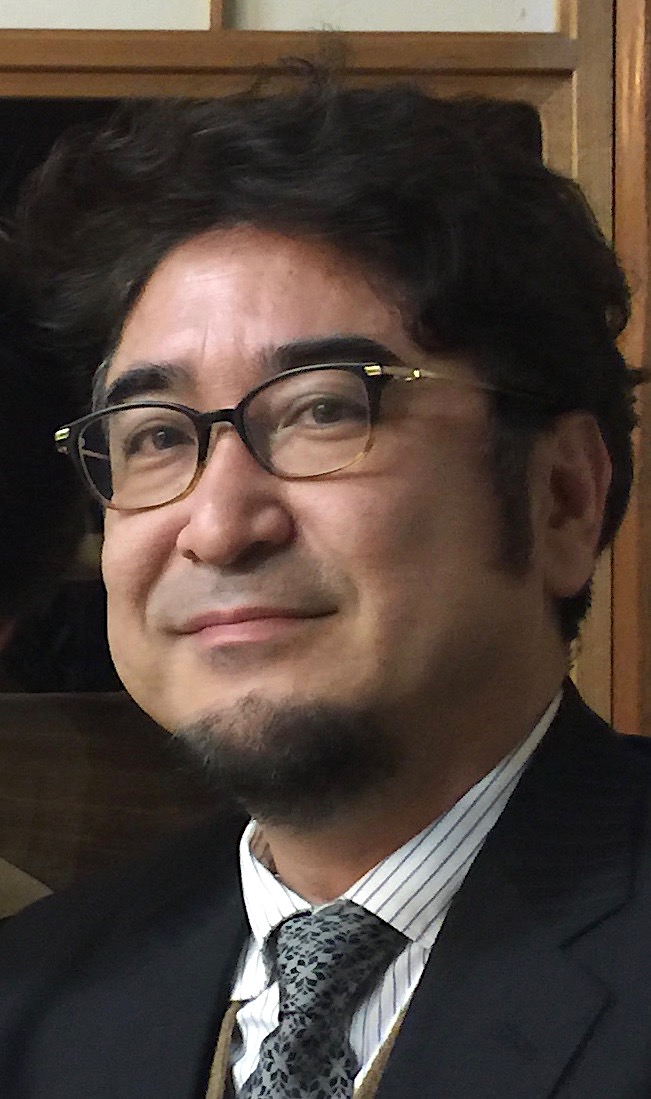
.jpg)
